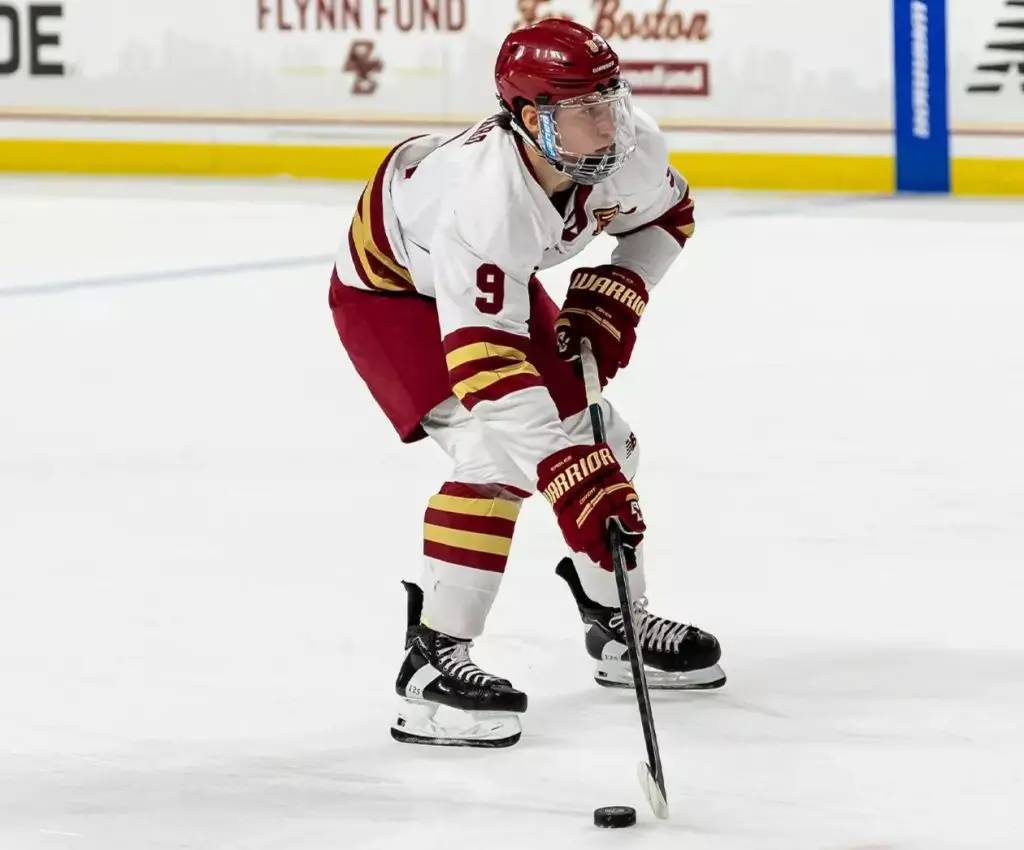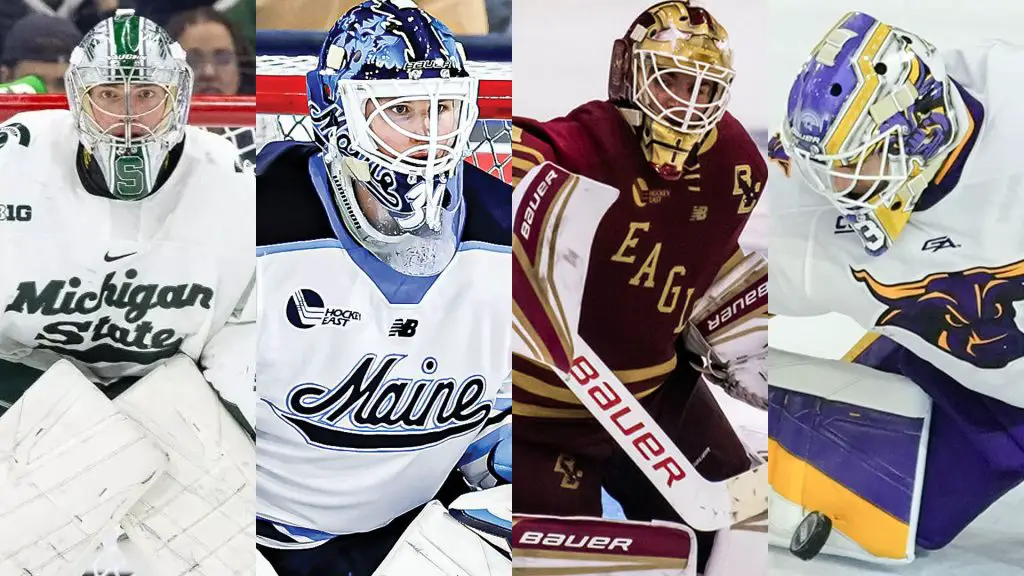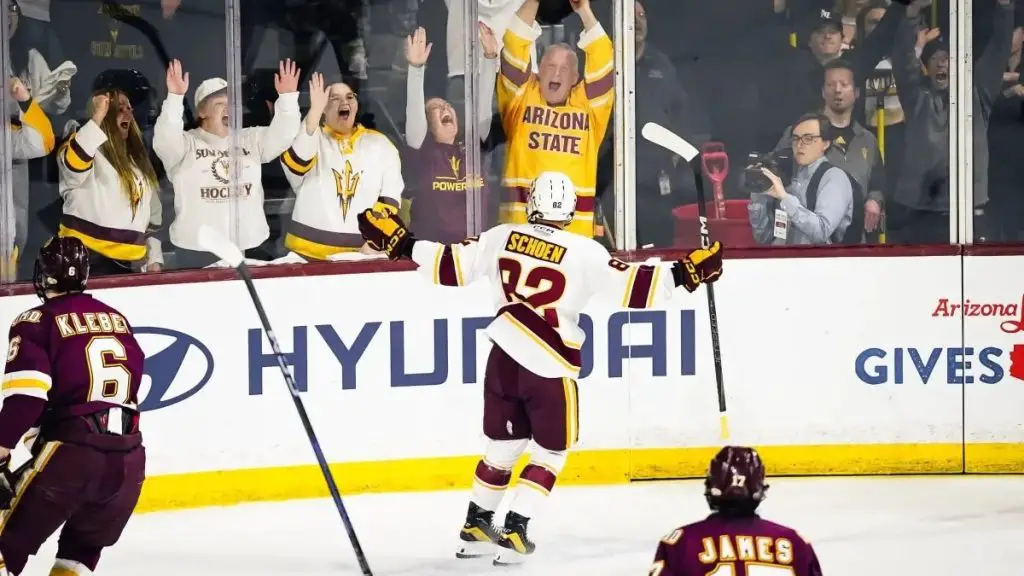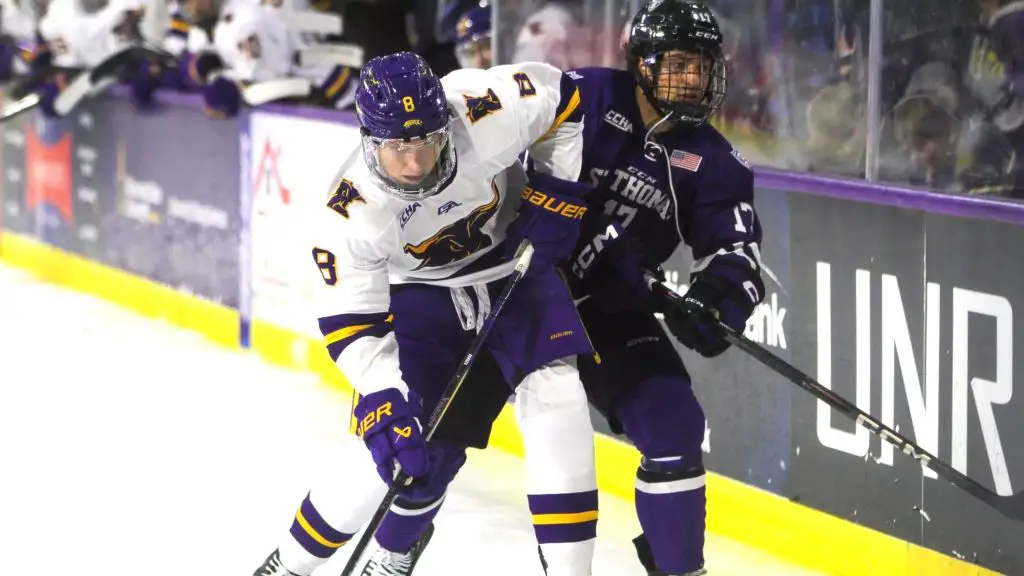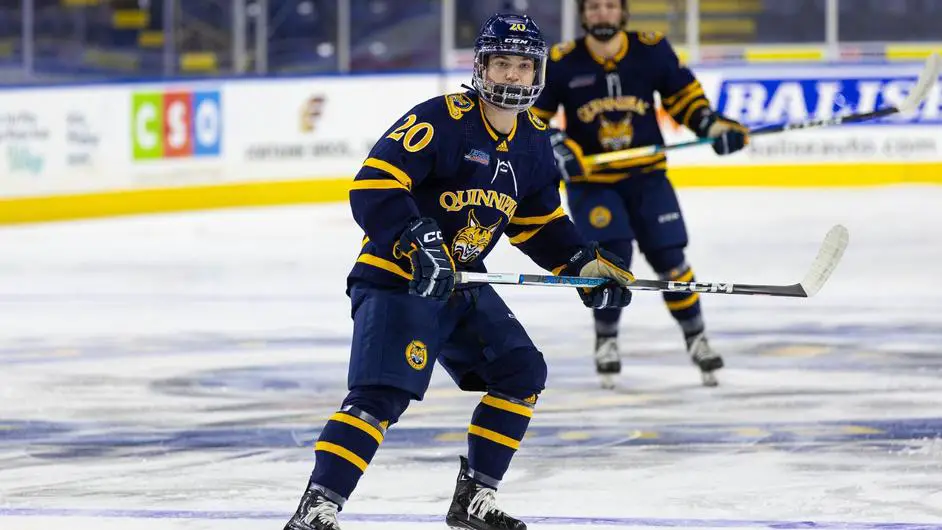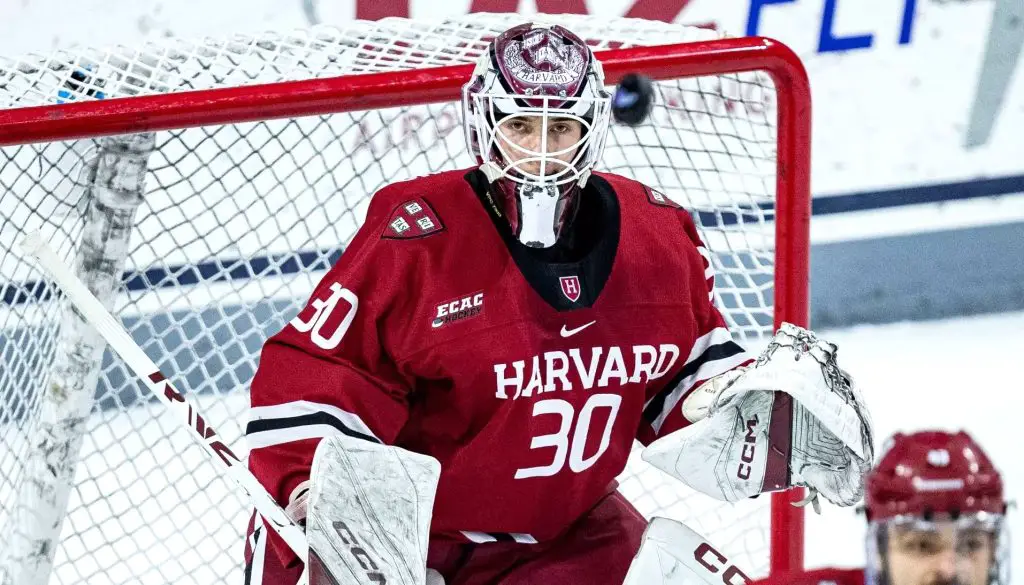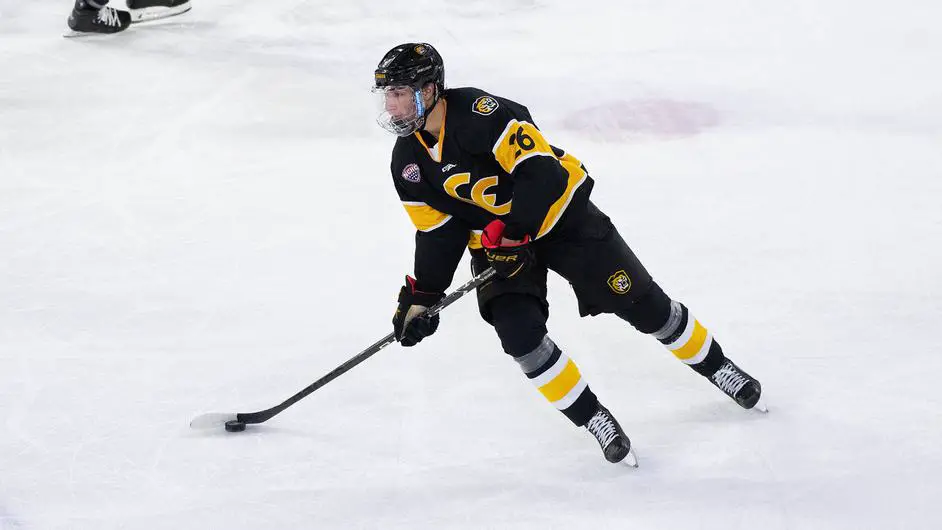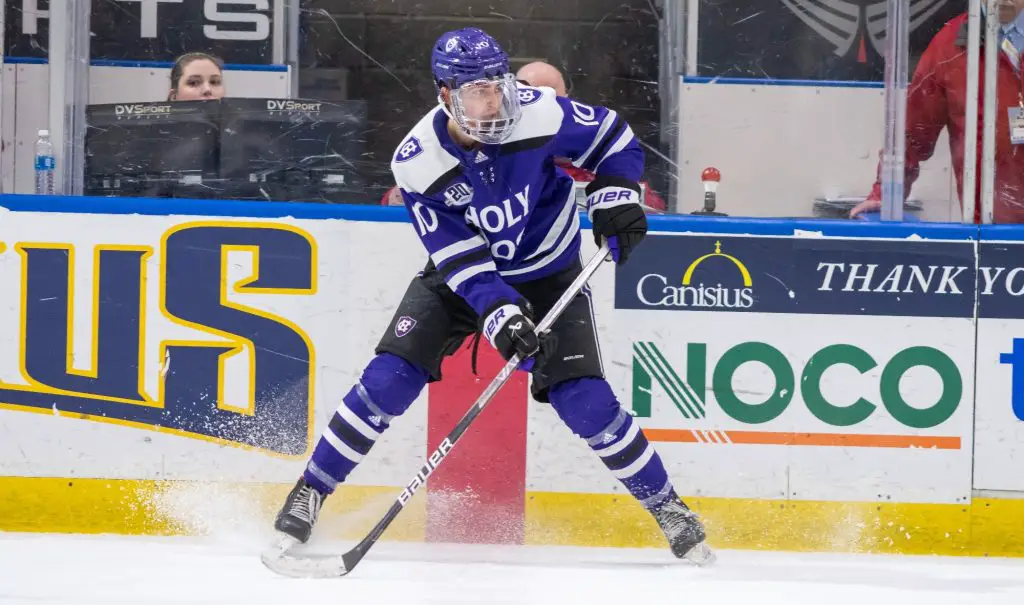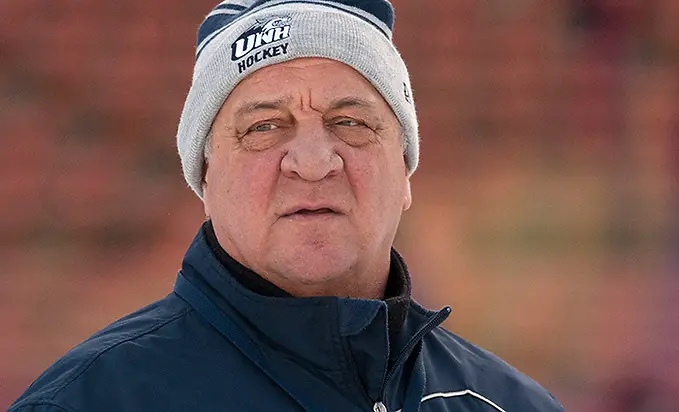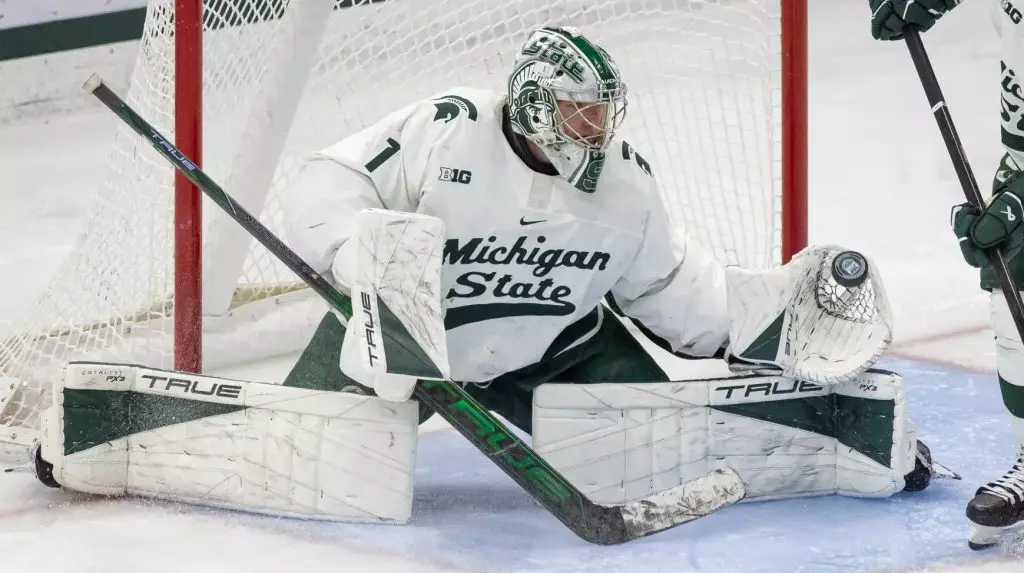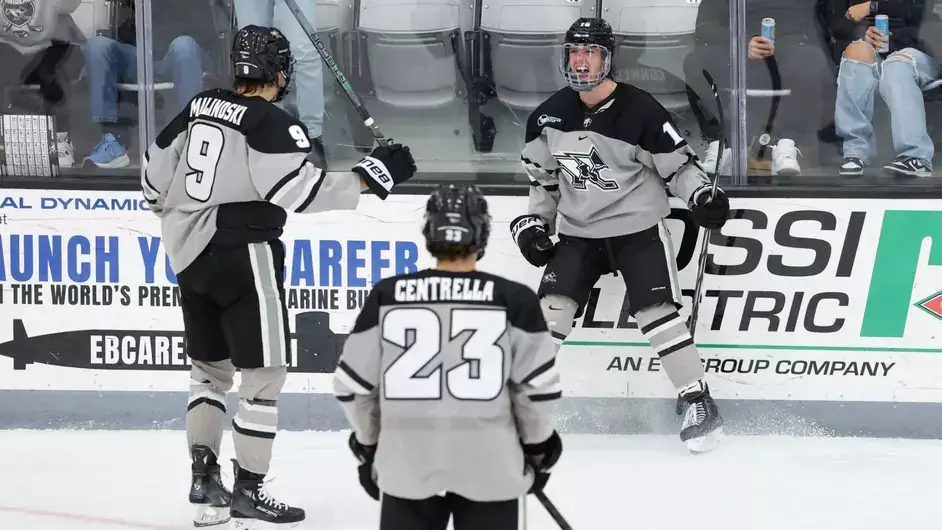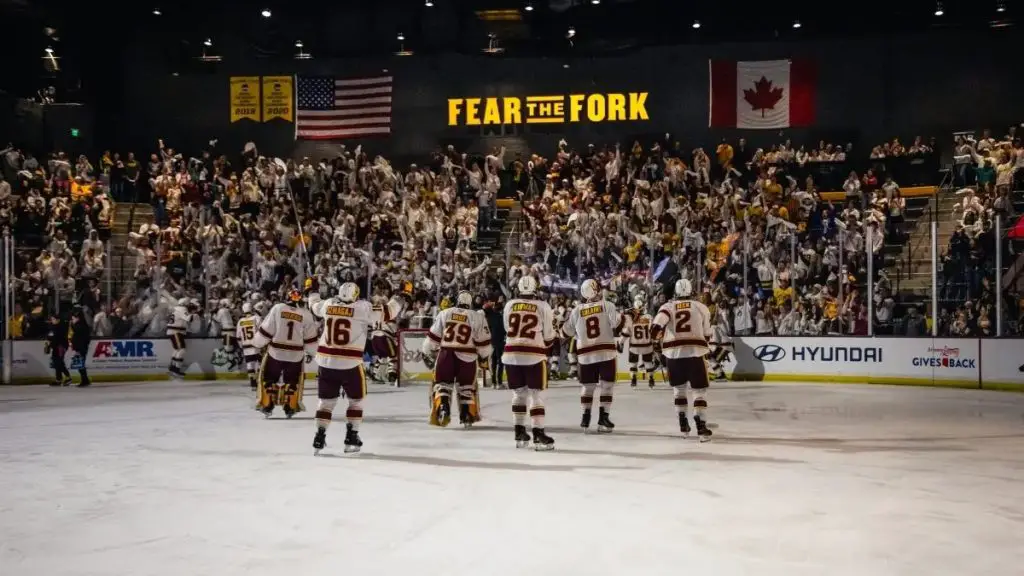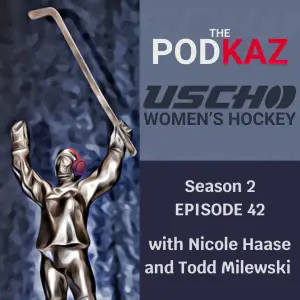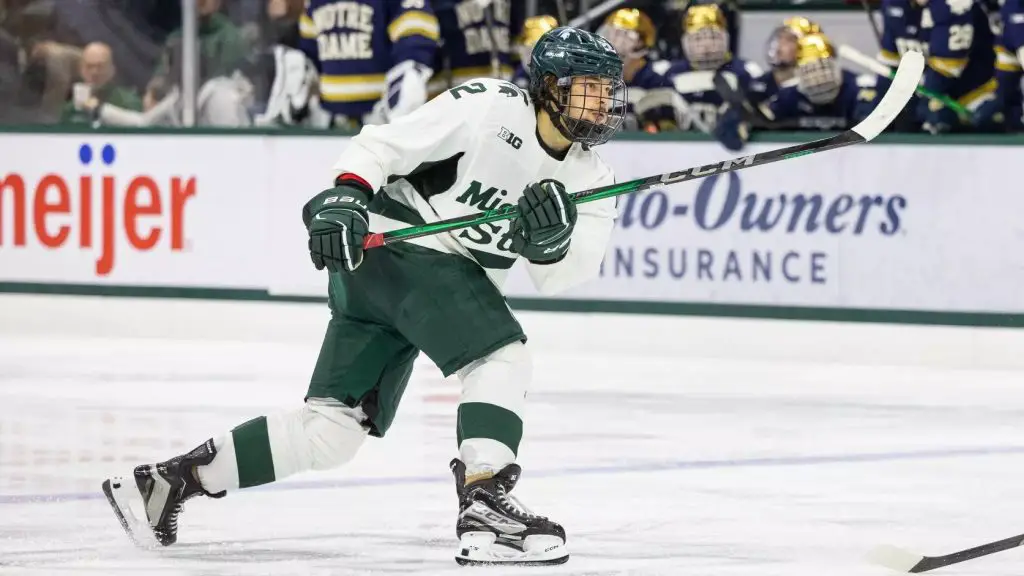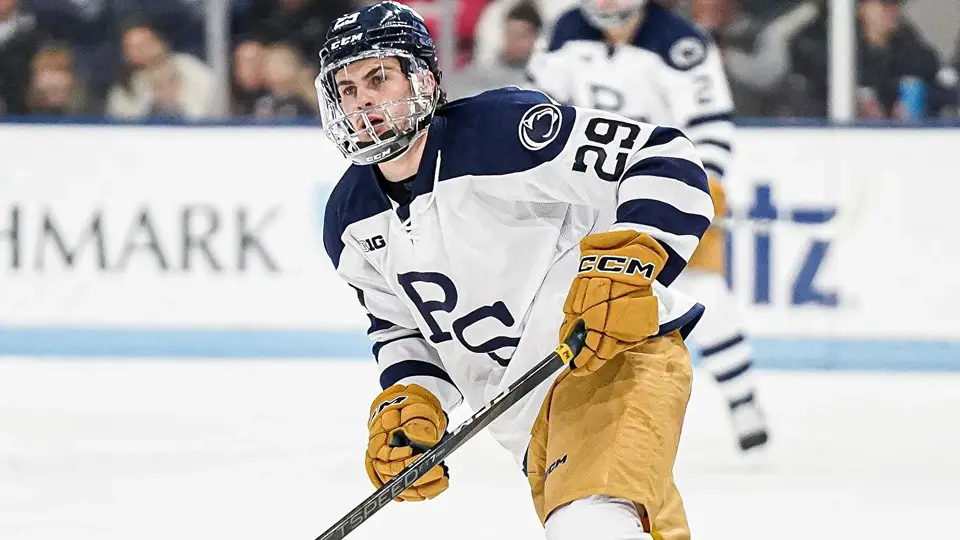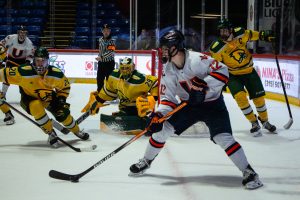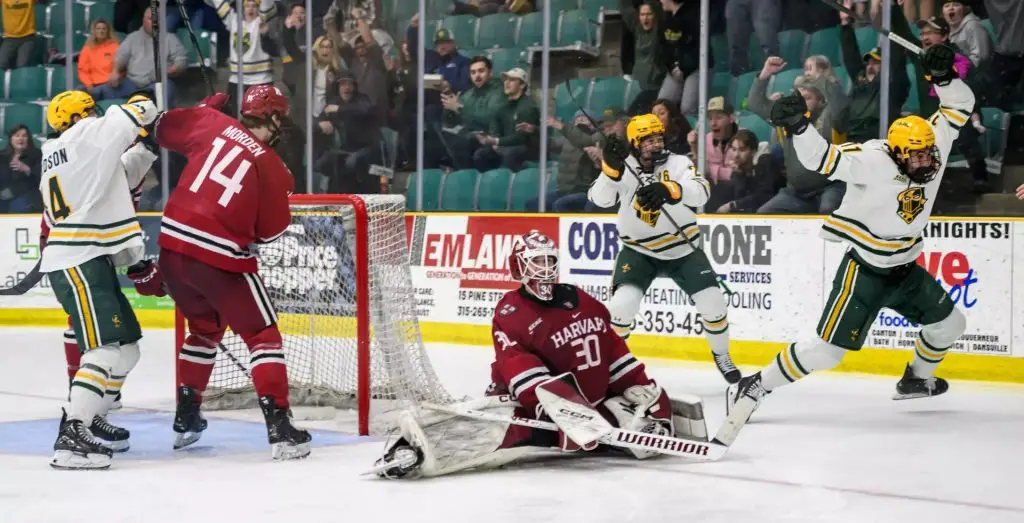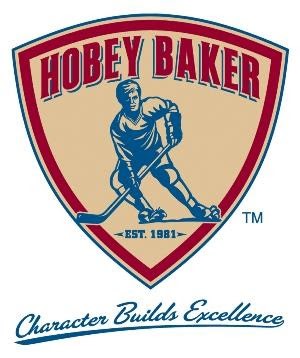 The Hobey Baker Memorial Award Foundation has announced the top 10 candidates for the 2025 award honoring college hockey’s top player.
The Hobey Baker Memorial Award Foundation has announced the top 10 candidates for the 2025 award honoring college hockey’s top player.
Alphabetically, they are Zeev Buium, Denver; Jack Devine, Denver; Aiden Fink, Penn State; Mac Gadowsky, Army West Point; Isaac Howard, Michigan State; Ryan Leonard, Boston College; Ayrton Martino, Clarkson; Liam McLinskey, Holy Cross; Jimmy Snuggerud, Minnesota; and Alex Tracy, Minnesota State.
The 10 finalists were selected by voting from all 64 Division I college hockey head coaches and online fan balloting. This year’s Hobey Baker winner will be chosen from this group by the 30-member selection committee as well as an additional round of fan balloting running from March 19–30 on the Hobey Baker website. Criteria for the award are displaying outstanding skills in all phases of the game, strength of character on and off the ice, sportsmanship, and scholastic achievements.
The Hobey Hat Trick (three finalists) will be announced on April 3, and the Hobey Baker Award winner will be announced on April 11, during the Frozen Four weekend in St Louis. The announcement will be televised live from the Stifel Theatre on the NHL Network and streamed on the Hobey Baker website at 6 p.m. ET.
Following, in alphabetical order, is a look at each finalist.
Zeev Buium – Denver – Sophomore, Defense, San Diego, CA
A highly gifted skater with tremendous play making capabilities, Zeev Buium (Boo-yum) has proved to be one of the premier defensemen in college hockey. Tied with fellow Hobey nominee Mac Gadowsky for first in the nation in points by a D-man, the two are also tied for 14th overall in national scoring. Buium excels at initiating offense and is tied for second in assists amongst all players nationally. For the second straight year he has garnered First Team all-conference honors and is a finalist for NCHC Player of the Year and Offensive Defenseman of the Year.
· Has 10 goals, 32 assists for 42 points in 36 games – secured points in 27 of 36 games played
· Has won two straight gold medals for Team USA at the World Junior Championships
· Draft of Minnesota (1st round, 2024) – Communications major
Jack Devine – Denver – Senior, Forward, Glencoe, IL
Back-to-back 50-point seasons by Jack Devine may very well lead to back-to-back national titles for the Pioneers. Devine heads into this weekend’s NCHC championship tournament as the nation’s leader in points and assists. Consistency is his trademark as he opened the season with points in 16 of his first 17 games and continued on a torrid pace throughout the campaign collecting points in all but seven games.
Claiming the NCHC Scoring Title, he was named First Team all-conference for the second straight year and is a finalist for Forward of the Year. Devine is a repeat Hobey Baker top ten finalist from last year.
· Has 13 goals, 41 assists for 54 points in 39 games – has had 16 multiple point games
· Average of 1.38 points per game is third best in the nation
· Florida draft (7th round, 2022) – Business Finance major
Aiden Fink – Penn State – Sophomore, Forward, Calgary, Alberta
A standout sophomore season has seen Aiden Fink become a prominent figure amongst the nation’s leading scorers. He currently sits second in the nation in scoring while topping all skaters with a 1.41 points per game average. A gifted goal scorer and playmaker, Fink was a unanimous selection as First Team all-conference in the Big Ten and was a finalist for the circuit’s Player of the Year.
· Has 23 goals, 29 assists for 52 points in 37 games – has produced 15 multiple point games
· His 8 power play goals are tied for 8th in the nation – is 6th in the nation in goals and assists
· Draft pick of Nashville (7th round, 2023) – is a Recreation, Park and Tourism Management major
Mac Gadowsky – Army West Point – Sophomore, Defense, State College, PA
Even though Army’s season ended last weekend, Mac Gadowsky left an indelible mark on Atlantic Hockey. He finished second overall in AHA scoring and is tied for the national lead in points by a defenseman. The circuit rewarded him as First Team all-conference, Defenseman of the Year, the AHA Sportsmanship Award and twice was named Defenseman of the Month.
· Finished with 16 goals, 26 assists for 42 points in 38 games – added 4 power play goals
· His father Guy is the men’s head hockey coach at Penn State
· Is a Cyber Science major – had only three minor penalties all season
Isaac Howard – Michigan State – Junior, Forward, Hudson, WI
The Spartans have been at or near the top of the national rankings all season with key contributions from their prolific scorer Isaac Howard. Presently tied for eighth in the nation in points, his 24 goals are tied for third in the country. He became the Big Ten conference Scoring Champion, First Team all-conference and the league’s Player of the Year. Howard’s past accomplishments for Team USA include multiple medals in U-18 and World Junior Championship competitions.
· Has 24 goals, 23 assists for 47 points in 35 games – is 5th in the nation in shots on goal
· Tampa Bay draft (1st round, 2022) – had 13 multiple point games
· Played his freshman season at Minnesota Duluth – Communications major
Ryan Leonard – Boston College – Sophomore, Forward, Amherst, MA
A relentless competitor and clutch performer, Ryan Leonard has been a driving force in elevating the Eagles to the nation’s number one ranking. His elite scoring prowess ties him for eighth in the nation in scoring, but he leads the country with 29 goals and nine game-winners. A high-volume shooter, Leonard is second in the nation in shots averaging 5.2 per game. Leonard has garnered several Hockey East awards including Scoring Champion, First Team all-conference and Player of the Year.
· Has 29 goals, 18 assists for 47 points in 35 games – currently riding a 16-game point streak
· Communications major – his +29 is third in the nation – Washington draft (1st round, 2023)
· Won gold medal as Team USA captain at 2025 World Junior Championships
Ayrton Martino – Clarkson – Senior, Forward, Toronto, Ontario
Well known as an excellent playmaker, Ayrton Martino (Air-ton) ramped up his goal production this season bagging 24 tallies to almost equal what he had produced in his first three seasons combined (25 goals). That vaulted Martino to the top as the ECAC Scoring Champion while collecting First Team all-conference honors and being a finalist for the Player of the Year. Currently tied for third in the nation in goals, Martino is also second in the nation in game winning goals with eight.
· Has 24 goals, 25 assists for 49 points in 37 games – has points in 11 of his last 12 games
· Innovation & Entrepreneurship major – Dallas draft (3rd round, 2021)
· Is tied for fifth in the nation in scoring and his 1.32 points per game average is eighth
Liam McLinskey – Holy Cross – Senior, Forward, Pearl River, NY
Another repeat top ten Hobey finalist, Liam McLinskey, continues to thrive in producing offense. Helping the Crusaders to the AHA playoff title game, McLinskey currently is third in the nation in scoring, tied for sixth in goals and his nine power play tallies are tied for third best in the country. McLinskey has rounded out his game as an effective penalty killer, helping Holy Cross to tie Boston College as the nation’s best at killing penalties. For the second straight year, McLinskey is the AHA Scoring Champion, Player of the Year and First Team all-conference while also gaining Forward of the Year distinction.
· Has 23 goals, 28 assists for 51 points in 39 games – has 9 power play goals
· Economics major – active in a variety of community service and school initiatives
· Had a brief two-game stint as a freshman at Quinnipiac
Jimmy Snuggerud – Minnesota – Junior, Forward, Chaska, MN
An accomplished goal scorer with a deadly shot, Jimmy Snuggerud brought a more balanced approach to his game this past season as a terrific playmaker. During January, he bagged 11 goals and 6 assists in 9 games and was named National Player of the Month. Snuggerud became just the third Gopher to record 20 or more goals in each of his first three seasons. The Big Ten named him First Team all-conference and he was one of three finalists for the circuit’s Player of the Year.
· Has 22 goals, 27 assists for 49 points in 39 games – has had 16 multiple point games
· Nationally is fifth in points, tied eighth in goals and tenth in assists – average 4 shots per game
· Business and Marketing Education major – St. Louis draft (1st round, 2022)
Alex Tracy – Minnesota State – Junior, Goalie, Chicago, IL
Could another Maverick goalie win the Hobey like Dryden McKay did in 2022? The final line of defense for the Mavs has elevated his squad to the CCHA title game and a berth in the national tournament. Tracy will take a nine-game unbeaten streak into the CCHA championship game. A positionally sound and very consistent goalie, Tracy has soared to the top of the nation in both goals against average and save percentage. He is a semi-finalist for the Mike Richter Award as the nation’s top goalie and has already been named CCHA Goalie of the Year, Player of the Year and First Team all-conference.
· Current record is 25-8-3, goals against average 1.41, saves percentage .946, has 5 shutouts
· CCHA and National Goalie of the Month for both November and February
· Finance major with 3.94 GPA – very active in a variety of off-ice community activities
Hobey Notes
Candidates by conference: Big Ten – 3, NCHC – 2, AHA – 2, Hockey East – 1, CCHA – 1, ECAC – 1
By position: Forwards – 7, Defense – 2, Goalie – 1
By class: Senior – 3, Junior – 3, Sophomore – 4
By nationality: U.S. – 8 (Ill. – 2; 1 each NY, Mass., Penn., Wis., Cal., Minn.); Canada – 2 (Alb., Ont.)
Repeat Candidates: Jack Devine (’24), Liam McLinskey (’24)
Four schools have a finalist for the second straight year: Boston College, Denver, Holy Cross, Minnesota State
Seven of the ten finalists have been NHL draft picks with four selected in the first round (Buium, Howard, Leonard, Snuggerud)
The Hobey Baker website also has the top 10 video and in-depth bios. The Hobey Baker top 10 video is available in a high-definition format at www.hobeybaker.com/media
The 2025 Hobey Baker Award winner will be honored along with this year’s Hobey Baker Legend of College Hockey, Dick Umile, at the annual banquet and golf outing to be held in August in Lake Elmo, Minn.
